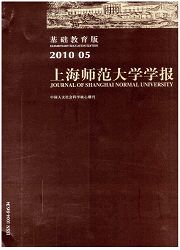

 中文摘要:
中文摘要:
北宋神宗熙丰时期为了推行新政,防范臣僚结党营私,屡屡兴起诏狱,不惜将涉案大臣送入诏狱严加审讯。下狱受审的大臣人数之多,在此前的北宋历史上还没有发生过,臣僚的人格受到极大侮辱,从而重创了当时的士风,侵害了宋代优礼大臣之祖制,给当时的朝政造成了重要影响。熙丰时期的诏狱,虽存有枝蔓株连、过度求治现象,但除赵世居案外,并未出现诛杀冤案,总体上仍能遵循祖宗不杀大臣之遗训。熙丰时期一系列诏狱的设置以及诏狱审判制度的制定实施,彰显了宋代的法制,是唐宋变革时期值得关注的重要内容。研究这些诏狱,对于进一步探讨北宋时期的政治不无意义。
 英文摘要:
英文摘要:
During the Xi Feng period under the reign of Emperor Shenzong, in order to initiate new policies and prevent court officials from forming cliques for their selfish interests, Emperor Shenzong frequently arrested some court officials involved and put them in the Imperial Edict Prison. As a result, the number of arrested officials was unprecedented, and the arrested offi- cials were severely humiliated. Consequently, the common practice and spirit of literati and officialdom in the North Song Dynasty suffered a serious blow, and the ancestral systems of granting preferential treatment to court officials were infringed too. More im- portantly, the court politics of that day was under severe attack. Generally speaking, the establishment of the Imperial Edict Pris- on and the implementation of its judicial system revealed the legal system of Song Dynasty, and became the important issue of the reforming period during the Tang and Song Dynasties. A study of the Imperial Edict Prison is of great significance for further ex- ploration of the politics of the North Song Dynasty.
 同期刊论文项目
同期刊论文项目
 同项目期刊论文
同项目期刊论文
 期刊信息
期刊信息
